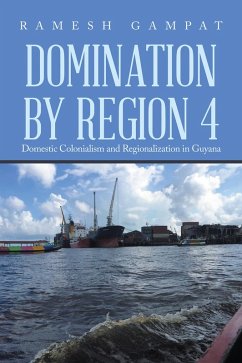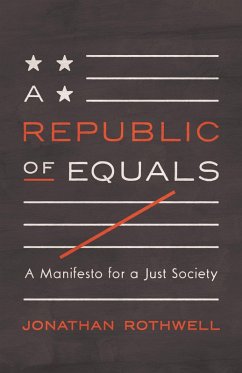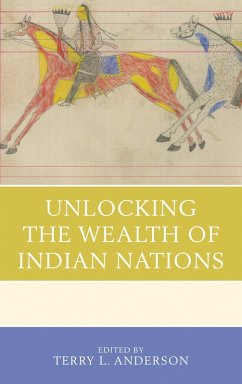
Guyana's Great Economic Downswing, 1977-1990 (eBook, ePUB)
Socio-Economic Impact of Co-Operative Socialism
Versandkostenfrei!
Sofort per Download lieferbar
5,99 €
inkl. MwSt.
Weitere Ausgaben:

PAYBACK Punkte
3 °P sammeln!
Much of Guyana's 20th century history was defined by the PNC dictatorship and the political and economic wreckage it left behind. In "Guyana's Great Economic Downswing, 1977 to 1990", Dr Ramesh Gampat presents a comprehensive study of these specific years when the national economy contracted by 2.7 percent annually. He explores the multiple facets of the country's political tribalism which "does not value freedom, liberty and the flourishing of all people; it values only freedom, liberty and flourishing of tribes." The study reinforces the widely held belief that until and unless these adversa...
Much of Guyana's 20th century history was defined by the PNC dictatorship and the political and economic wreckage it left behind. In "Guyana's Great Economic Downswing, 1977 to 1990", Dr Ramesh Gampat presents a comprehensive study of these specific years when the national economy contracted by 2.7 percent annually. He explores the multiple facets of the country's political tribalism which "does not value freedom, liberty and the flourishing of all people; it values only freedom, liberty and flourishing of tribes." The study reinforces the widely held belief that until and unless these adversarial groups subsume their respective selfish interests and commit to the common cause of national peace and development, the great downswing might not rest as a historical event but could well re-emerge with further economic devastation if the lessons go unheeded. Dr Gampat makes a strong case for federalism as a solution to Guyana's ethnic politics. Federalism, he posits, would ensure that all Guyanese have equal access to opportunities and resources since a system of provincial governance would be better placed to address discriminatory policies and practices at a localised level. With the country sitting on the cusp of transformative development to be propelled by new-found oil wealth, there is an urgency to settle the divisive politics if every Guyanese is to benefit fairly and equitably from the economic boom. "Guyana's Great Economic Downswing, 1977 to 1990" offers up a studied and comprehensive analysis that should be part of that bipartisan discourse going forward. --- Ryhaan Shah, Novelist, Social Activist A few piecemeal academic articles analyzing Guyana's economic evolution over the period 1977 to 1990 were written, but they are scattered and lost away in various journals. What was missing is a comprehensive and rigorous exploration of the era of Cooperative Socialism. Dr. Ramesh Gampat's book fills this gap. It is a superb synthesis of historical, theoretical and econometric exploration of the Great Downswing. The book not only provides estimates of important macroeconomic concepts such as Guyana's total factor productivity and long-term growth, but also produces the useful statistics and reviews of poverty, inequality, life expectancy, education outcomes as well as a detailed analysis of the rice sector. As if these are not enough, Gampat sets the tone by situating the exploration in the country's long standing and debilitating ethno-political dynamics. This self-contained book will be of tremendous use to policy makers, journalists and students interested in the historical context of present-day outcomes. I highly recommend this book to public libraries and home reference libraries. ---Tarron Khemraj, William and Marie Selby Professor of Economics and International Studies, New College of Florida
Dieser Download kann aus rechtlichen Gründen nur mit Rechnungsadresse in A, D ausgeliefert werden.













